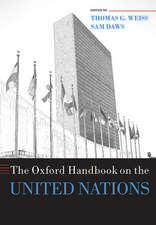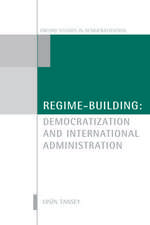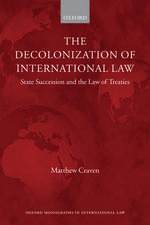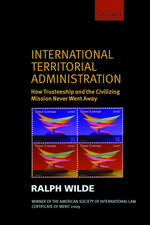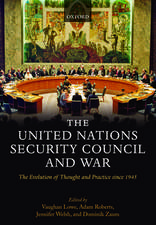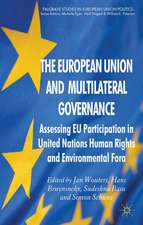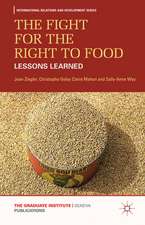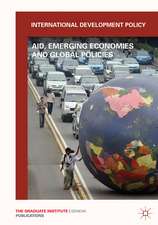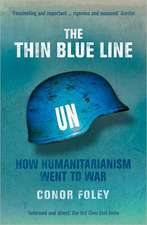International Organization: The Library of Essays in Global Governance
Editat de John J. Kirtonen Limba Engleză Hardback – 3 apr 2009
Preț: 1472.50 lei
Preț vechi: 1976.70 lei
-26% Nou
Puncte Express: 2209
Preț estimativ în valută:
281.80€ • 291.11$ • 234.53£
281.80€ • 291.11$ • 234.53£
Carte tipărită la comandă
Livrare economică 25 martie-08 aprilie
Preluare comenzi: 021 569.72.76
Specificații
ISBN-13: 9780754626749
ISBN-10: 0754626741
Pagini: 532
Dimensiuni: 174 x 246 mm
Greutate: 1.23 kg
Ediția:1
Editura: Taylor & Francis
Colecția Routledge
Seria The Library of Essays in Global Governance
Locul publicării:Oxford, United Kingdom
ISBN-10: 0754626741
Pagini: 532
Dimensiuni: 174 x 246 mm
Greutate: 1.23 kg
Ediția:1
Editura: Taylor & Francis
Colecția Routledge
Seria The Library of Essays in Global Governance
Locul publicării:Oxford, United Kingdom
Cuprins
Contents: Introduction; Part I Overviews of the Field: International organization: a state of the art on an art of the state, Friedrich Kratochwil and John Gerard Ruggie; Theories and empirical Studies of international institutions, Lisa L. Martin and Beth A. Simmons; What are international institutions?, John Duffield. Part II Core Concepts and Competing Theories: Power and Interdependence revisited, Robert O. Keohane and Joseph S. Nye Jr; Structural causes and regime consequences: regimes as intervening variables, Stephen D. Krasner; International regimes, transactions, and change: embedded liberalism in the postwar economic order, John Gerard Ruggie; International institutions: 2 approaches, Robert O. Keohane; Concerts, collective security, and the future of Europe, Charles A. Kupchan and Clifford A. Kupchan; The false promise of international institutions, John J. Mearsheimer. Part III New Directions: Introduction: epistemic communities and international policy coordination, Peter M. Haas; Multilateralism and world order, Robert W. Cox; Is American multilateralism in decline?, G. John Ikenberry; Imagined (security) communities: cognitive regions in international relations, Emanuel Adler; Governance, good governance and global governance: conceptual and actual challenges, Thomas G. Weiss; The emerging roles of NGOs in the UN system: from Article 71 to a people's millennium assembly, Chadwick Alger. Part IV Compliance, Effectiveness and the Domestic Dimension: Diplomacy and domestic politics: the logic of 2-level games, Robert D. Putnam; The politics, power, and pathologies of international organization, Michael N. Barnett and Martha Finnemore; Name index.
Notă biografică
John J. Kirton, Professor, University of Toronto, Canada
Descriere
For more than a century, international organizations have been central to the study and practice of international relations and global governance. By assembling the leading articles from realist, liberal institutionalists, constructivists and political economy traditions, this collection examines the many organizations which have formed, in ever-expanding numbers and fields over the years, and the degree to which they have succeeded and their future potential.







